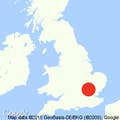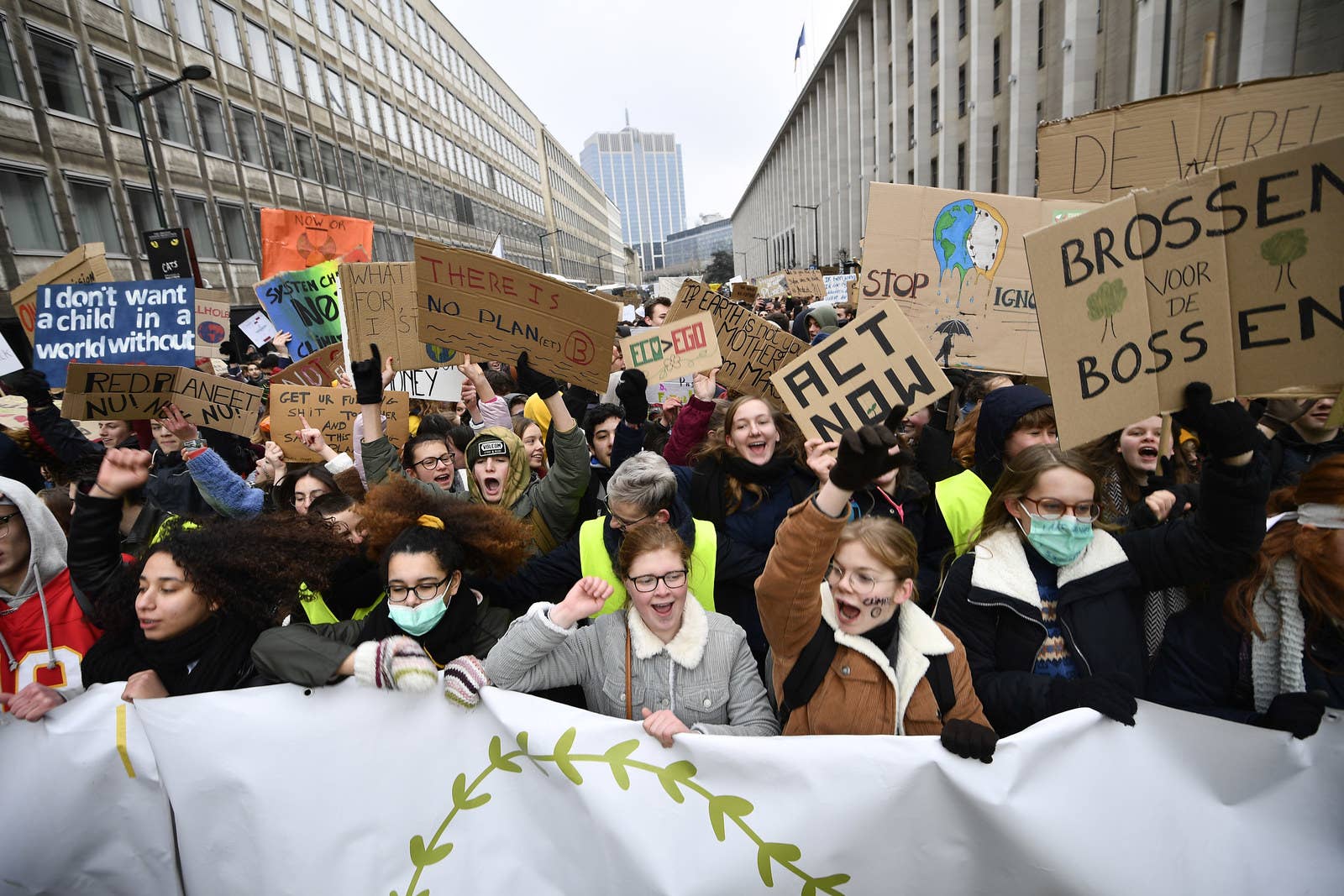
LONDON — A huge student protest movement led almost exclusively by teenage girls and young women is sweeping Europe, and it's on the brink of breaking through in the US.
So far this year, tens of thousands of high school–age students in Belgium, Germany, and Sweden have boycotted class and protested against climate change. The loose movement’s inspiration, a 16-year-old girl who began a solitary picket last year outside the Swedish Parliament in Stockholm, has compared the protests to the March for Our Lives movement organized by the Parkland teens in the wake of a shooting at their school that left 17 dead.
In the latest mass climate strikes, large crowds took to the streets in The Hague on Thursday, in the largest such protest in the Netherlands so far. The teens leading the climate strike across the border in Belgium were in Leuven, the country’s eighth-largest city, where they told BuzzFeed News they had 12,000 people on the streets in one of many actions across the country.
A climate march last weekend in the Belgian capital, Brussels, drew more than 100,000 people, and one of the country’s environment ministers resigned this week after falsely claiming intelligence services had told her the protests were a plot against her.
The protests are injecting a new urgency into the debate around climate change, and calling attention to a lack of action by governments. They are also a sign of the new political power of young women, especially in Europe. Climate strikes have also been organized by students in Australia, and US organizers are planning to participate in an international day of action on March 15.
Jamie Margolin, the 17-year-old founder and executive director of Zero Hour, a group working on the March 15 protest in the US, told BuzzFeed News that climate activism has given young women like her a chance to be heard.
“There aren’t very many spaces that I can be in charge of, and what I’m going to say is going to be heard,” Margolin said. Her group is led largely by young women of color, which she said should come as no surprise, because people who are already vulnerable are going to be disproportionately hit by climate change. A 2014 report by the World Health Organization outlined that women are more likely to be harmed in the kinds of natural disasters made more likely by global warming, bear greater responsibility for getting access to water, energy, and other basics of domestic life, and often are shut out of opportunities when resources decline.
“If you’re a victim of a system of oppression, you’re more affected by the climate crisis — that goes for women,” she said. “Nobody is going to hand us this. We have to step up and raise our voices.”
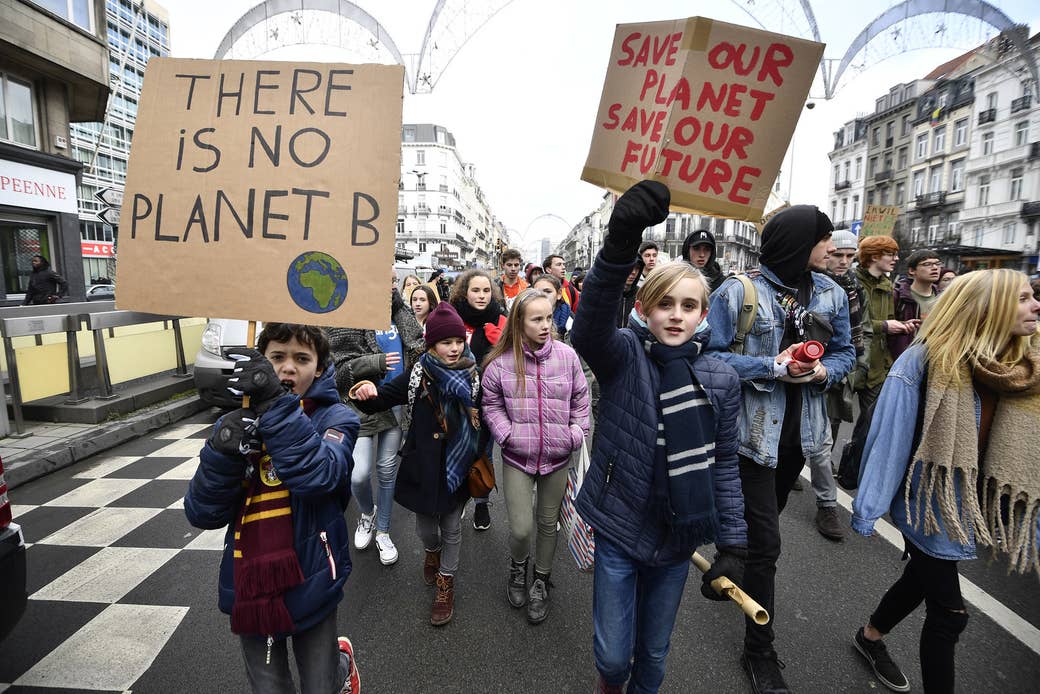
Some of the most dramatic protests have come in Belgium. For the past four Thursdays, mass walkouts by students have taken place, and at the heart of those actions is a 17-year-old called Anuna De Wever.
De Wever and her best friend, Kyra Gantois, filmed a video and posted it online; they called on students to protest in early January. They expected only a handful of people to turn up, but were stunned to find a crowd of around 3,000. The protests have now grown as large as 30,000 on Thursdays across the country, with even larger protests on the weekend.
“When we started it, Kyra and me, we thought it would be just 20 people,” De Wever said in a phone interview with BuzzFeed News from her home in Antwerp. “I’m so thankful to my generation that they really care about it.”
De Wever was inspired to act after seeing the video of another teenager, Greta Thunberg from Sweden.
Thunberg was 15 when she launched a solitary protest last August by boycotting school every Friday and picketing in front of the Swedish Parliament to demand the country meet obligations under the Paris climate accords.
Thunberg, who has Asperger's syndrome, has become a celebrity since. She addressed global climate talks last December, the World Economic Forum in Davos in January, and has given her own TED Talk. She has an Instagram with more than 250,000 followers where she posts pictures of world leaders, protests, and her dog. From the very beginning, she called for young people to follow her example.
“We are on a school strike for the climate. … We urge everyone to do the same wherever you are,” she said in the video about her climate strike that first popularized the protests. “Sit outside your Parliament or local government building until your nation is on a safe pathway to a below two-degree warming target.”
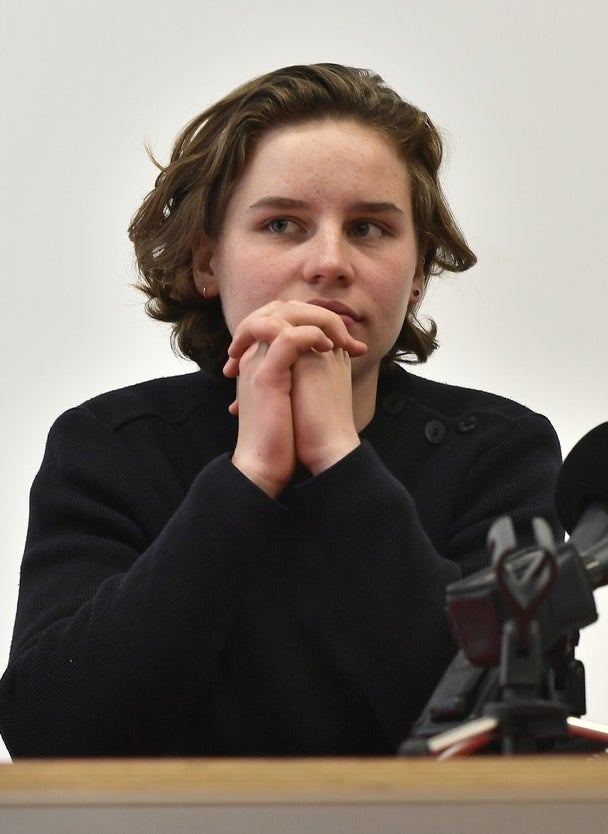
De Wever told BuzzFeed News that as well as Thunberg’s video, two things happened this winter that made her feel like she had to take action: The first was Belgium’s decision not to embrace ambitious steps to cut carbon emissions in December. The second was the realization that she would not be 18 before the spring elections in both Belgium and for the Parliament of the European Union. By the time an election came where she would actually have a say, the chance to rein in climate change could be almost gone forever.
The latest report from the Intergovernmental Panel on Climate Change, released last October, said the world would see catastrophic impacts from climate change, such as rising seas and coral reefs dying, even if countries managed to limit warming to just 1.5 degrees Celsius, which is the most ambitious target under the existing climate accords. The report also said countries needed to act even faster than they’ve previous agreed to.
This seems basically impossible especially as the US, one of the largest emitters of greenhouse gases, is actually increasing its emissions. President Donald Trump has rolled back many climate directives and policies, as well as vowed to withdraw the US from the Paris agreement.
It’s shocking, De Wever said, that adults should have to be reminded by high school students that they’re making decisions that will shape their entire lives.
“Your political games, they’re very funny and all, but you’re the influences of our future,” she told BuzzFeed News. She said the protests, now in their fifth week and drawing tens of thousands in cities across Belgium, have given her a voice that’s “better than voting.”
Her protests have met a considerable backlash; there have been death threats online now being investigated by police, her mother told BuzzFeed News. (In a lengthy Facebook post, Thunberg wrote this month that she had seen “enormous amounts of hate” about her.)
One of Belgium’s environment ministers, Joke Schauvliege, claimed the country's intelligence service had told her the protests were a “setup” and not “spontaneous actions of solidarity with our climate.” Schauvliege later resigned after admitting that the security services told her no such thing.
De Wever told BuzzFeed News that her concern about climate change grew directly out of gender advocacy. De Wever, who was assigned female at birth, identified as a boy throughout primary school, and now identifies as gender-fluid and prefers female pronouns. This experience made her comfortable challenging basic assumptions about the world that older people often treat as unchangeable, which she said is also true of the feeling that the steps to stop climate change are out of reach.
“Being gender-fluid by a young age ... how I see the world is a bit different,” she said. “I don’t look at the mainstream and what they think. I start to have my own values, own principles, and I think about what’s not going right in this world and what can I do and improve it instead of just closing my eyes to it — that really scares me.”
De Wever became passionate about climate change while attending a youth conference associated with the United Nations Commission on the Status of Women in 2016. There she learned that women often suffer disproportionately during natural disasters compared to men, and so were likely to be hurt the worst by climate change.
De Wever’s mother, Katrien Van der Heyden, told her about Thunberg’s video in their kitchen one evening last December. She watched it that night, and then announced the following morning she would make a video of her own with her best friend.
“I have to be very honest about this — at this point in time I didn’t think it would amount to anything,” said Van der Heyden, who now acts as her daughter’s de facto press secretary. “I thought, It’s a nice little project. She’s going to be making that little movie with her friends; it’s educational, much better that just staying at home watching Netflix — I underestimated my daughter.”
Van der Heyden, a 51-year-old sociologist who specializes in gender equity, said she also underestimated the whole young generation.
As far as she could recall, she said, “It’s the very first time in Belgium that a [mass movement was] started by two women and not about feminist rights.” When the protests drew tens of thousands, Van der Heyden said, she was stunned to see as many boys as girls in the crowds, and yet no one ever challenged the leadership of the female organizers.
“We, as women leaders, have been pushed aside by men. We were told we can only be leaders [on women’s issues],” she said. Van der Heyden said that when she sees boys in the crowd shouting her daughter’s name at the rallies, “Every time I’m moved to tears.”
“The whole mansplaining mechanism has really disappeared in that generation,” she said.
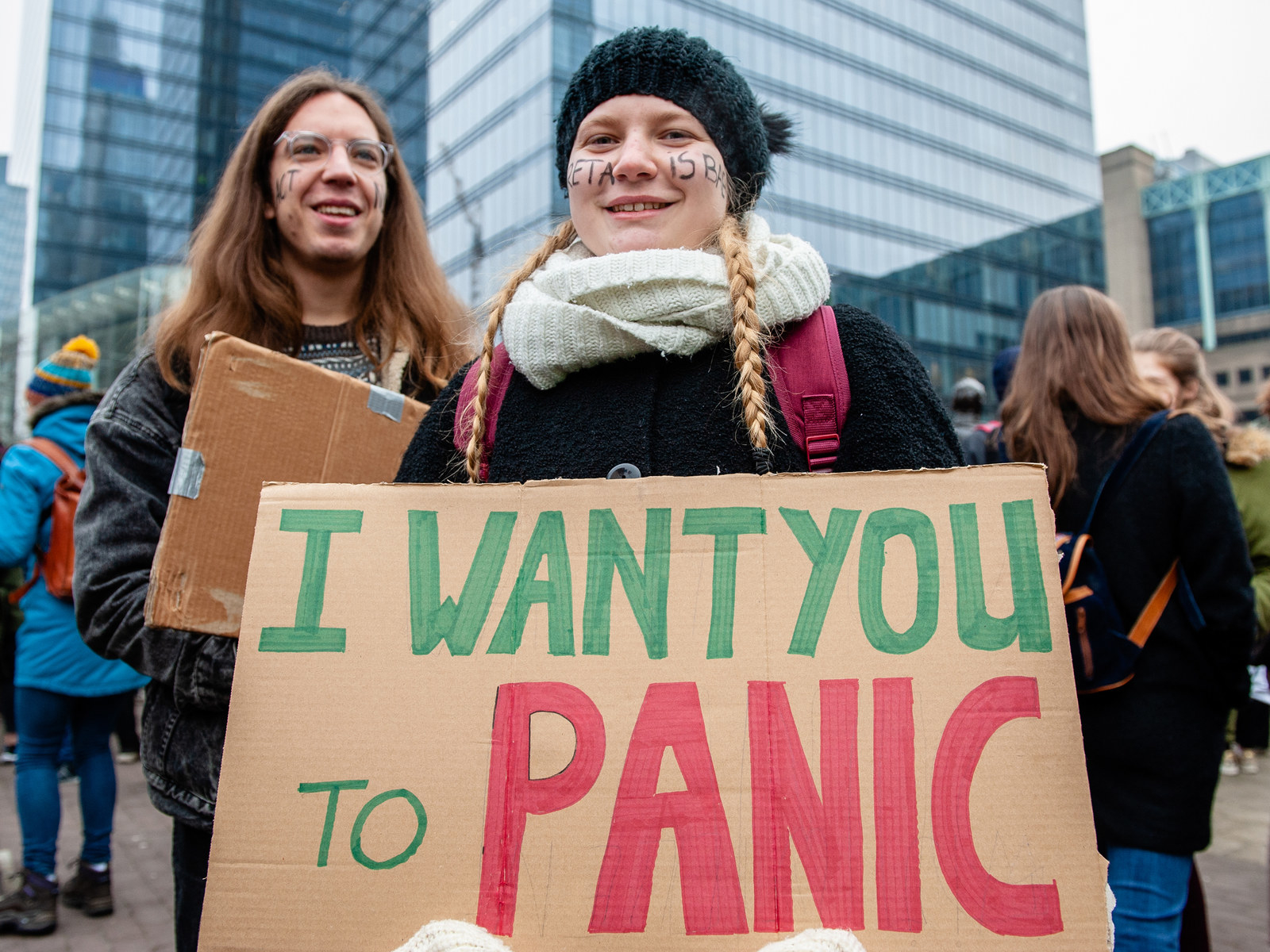
But the decision-makers on climate remain overwhelmingly men. When the UN touted a new focus on gender in the Polish climate talks last year, the best it could come up with was that “more than half” of the working groups hammering out the accord had “female representation of 38 per cent or more.”
These protests have been a shot in the arm to well-established environmental protests, said Luisa Neubauer, a 22-year-old from Berlin who led the call for the climate strike in Germany. She’d already been active in Germany’s pitched battle over coal mining, which recently has involved environmental activists occupying sites slated for coal mining in the ancient Hambach Forest.
Neubauer — whose Twitter bio reads, “not a German Greta. We are tens of Thousands” — said that the Thunberg’s example was inspiring to get more women to speak up in the German movement. Though Germany’s chancellor, Angela Merkel, is one of the world’s longest serving and most powerful political leaders, Germany actually lags behind many other European countries in gender equality.
“I’ve been raised in a world where the people leading were men,” Neubauer said. “And if you wanted to make it as a woman, then you had to either look like Angela Merkel or participate in Germany’s Next Top Model.”
Nike Mahlhaus, a 25-year-old activist with the German environmental group Ende Gelände (Land’s End), said her organization had battled for years to get women’s voices into the environmental discussion. It made a deliberate decision to make women spokespeople because media outlets constantly gravitated toward male activists. So often online, she said, she finds herself facing off online with older men whose views get accepted as common sense while she has to defend herself from attacks of being radical or unhinged.
“The men who comment there are the white middle-aged men who keep this system running by thinking that there is no other option,” Mahlhaus said. “It hurts to realize that they have the power to define what is radical and what is reasonable, what is appropriate and what is insane, who we have to respect and who not.”
In many places, these young women’s protests have been treated with outright scorn. Some of the ugliest came from Australian Prime Minister Scott Morrison and his cabinet — which has just five women out of 21 ministers — after a climate strike in November.
“Kids should go to school. … We do not support our schools being turned into parliaments,” Morrison spat during a speech in the House of Representatives. Resource Minister Matt Canavan said kids who care about climate should focus on science class during an appearance on 2GB radio, adding, “The best thing you’ll learn about going to a protest is how to join the dole queue.”
Despite the huge scale of recent environmental protests in many countries, they have not produced anywhere near the levels of political attention of smaller protests dominated by older people. The Yellow Vest protests in France, a movement dominated by middle-aged activists who rallied in opposition to a hike in the tax on gasoline, are still driving French politics.
A French minister skipped out on the December climate talks in Poland because of the protests, and French President Emmanuel Macron announced he would reverse the tax, which was introduced to combat global warming. But an environmental protest last week drew more than 80,000 people to the streets of Paris alone, larger than the latest Yellow Vest protest. But it received little attention in French media.
“We really need to do something — the younger generation understand it more,” De Wever told BuzzFeed News. “We are called young and naive, but maybe being naive is what we need right now. We can look at the planet without being locked in the system.”
“This system is just wrong,” she said. “It discriminates against people. We’re not taking care of this planet.”
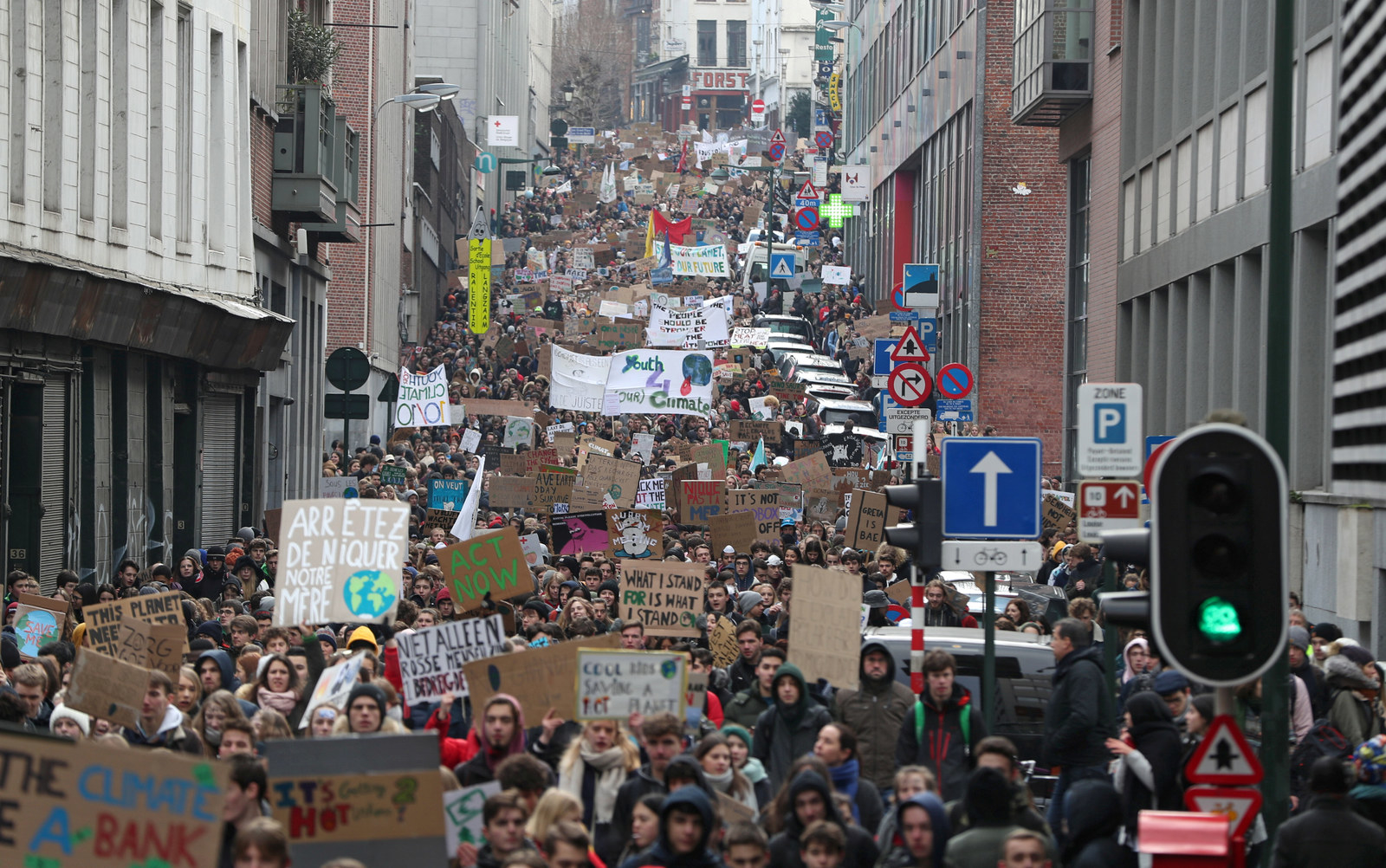
CORRECTION
Australia's lower house is the House of Representatives. A previous version of this post called it the House of Commons.
CORRECTION
Greta Thunberg began her school strike protest in August. A previous version of this post misstated the start date.



